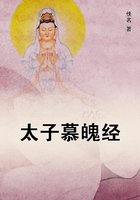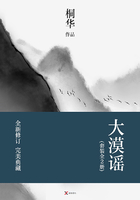this,for shortness,instead of saying at length that principle which states the greatest happiness of all those whose interest lain question,as being the right and proper,and only right and proper and universally desirable,end of human action:of human action in every situation;and,in particular,in that of a functionary,or set of functionaries,exercising the powers of Government.The word utility does not so clearly point to the ideas of pleasure and pain as the words happiness and felicity do:nor does it lead us to the consideration of the number,of the interests affected:
[to]the number,as being the circumstance which contributes,in the largest proportion,to the formation of the standard here in question;the standard of right and wrong,by which alone the propriety of human conduct,in every situation,can with propriety be tried.
This want of a sufficiently manifest connection between the ideas of happiness and pleasure on the one hand,and the idea of utility on the other,I have every now and then found operating,and with but too much efficiency,as a bar to the acceptance,that might otherwise have been given,to this principle.
For further elucidation of the principle of utility,or say greatest happiness principle,it may be some satisfaction to the reader,to see a note,inserted in a second edition,now printing,of a later work of the Author's,intitled `An Introduction to the Principles of Morals and Legislation'.In chapter 1,subjoined to paragraph xiii is a note in these words:'The principle of utility'(I have heard it said)`is a dangerous principle:it is dangerous on certain occasions to consult it.'This is as much as to saywhat?that it is not consonant to utility to consult utility;in short,that it is not consulting it,to consult it.
In the second edition,to this note is added the following paragraph.
Explanation,written 12th July,1822,relative to the above note.
Not long after the publication of the Fragment on Government,Anno 1776,in which,in the character of an all-comprehensive and all-commanding principle,the principle of utility was brought to view,one person by whom observation to the above effect was made was Alexander Wedderburn,at that time Attorney or Solicitor General,afterwards successively Chief Justice of the Common Pleas,and Chancellor of England,under the successive titles of Lord Loughborough and Earl of Rosslyn.It was madenot indeed in my hearing,but in the hearing of a person by whom it was almost immediately communicated to me.So far from being self-contradictory,it was (I now see and confess)a shrewd and perfectly true one.By that distinguished functionary,the state of the Government was perfectly understood;by the obscure individual,at that time,not so much as supposed to be so;his disquisitions had not been as yet applied,with any thing like a comprehensive view,to the field of Constitutional Law,nor therefore to those features of the English Government,by which the greatest happiness of the ruling one,with or without that of a favoured few,are now so plainly seen to be the only ends to which the course of it has at any time been directed.The principle of utility was an appellative,at that time employedemployed by me,as it has been by others,to designate that which,in a more perspicuous and instructive manner,may as above be designated by the name of the greatest happiness principle.`This principle'(said Wedderburn)`is a dangerous one.'Saying so,he said that which,to a certain extent,is strictly true;a principle,which lays down,as the only right and justifiable end of Government,the greatest happiness of the greatest numberhow can it be denied to be a dangerous one?dangerous to every Government,which has for its actual end or object,the greatest happiness of a certain one,with or without the addition of some comparatively small number of others,whom it is a matter of pleasure or accommodation to him to admit,each of them,to a share in the concern,on the footing of so many junior partners.`Dangerous'it therefore really was to the interestthe sinister interest of all those functionaries,himself included,whose interest it was to maximize delay,vexation,and expence,in judicial and other modes of procedure,for the sake of the profit extractible out of the expence.In a Government which had for its end in view the greatest happiness of the greatest number,Alexander Wedderburn might have been Attorney General and then Chancellor;but he would not have been Attorney General with 15,000l.a year,nor Chancellor,with a Peerage,with a veto upon all justice,with 25,000l.a year,and with 500sinecures at his disposal,under the name of Ecclesiastical Benefices besides et caeteras Note of the Author's,12th July,1822.
56.This is what there would be occasion to shew at large,were what he says of Law in general,and of the Laws of nature,and revelation in particular,to be examined.
57.I Comm.p.48.
58.V.infra,par.32Monarchy,which is the government of one,`is the most powerful form of government,'he says,`of any:"more so than Democracy,which he describes as being the Government of all.
59.1Comm.p.50.
60.Par.32.
61.1Comm.489.
62.By the laws of GERMANY such and such states arc to furnish so many men to the general army of the empire:some of them so many men and one half;others,so many and one third;others again,If I mistake not,so many and one fourth.One of these half,third-part,or quarter-men,suppose,possesses himself of the Government:here then we have a kind of corruption of a Monarchy.Is this what our Author had in view?















